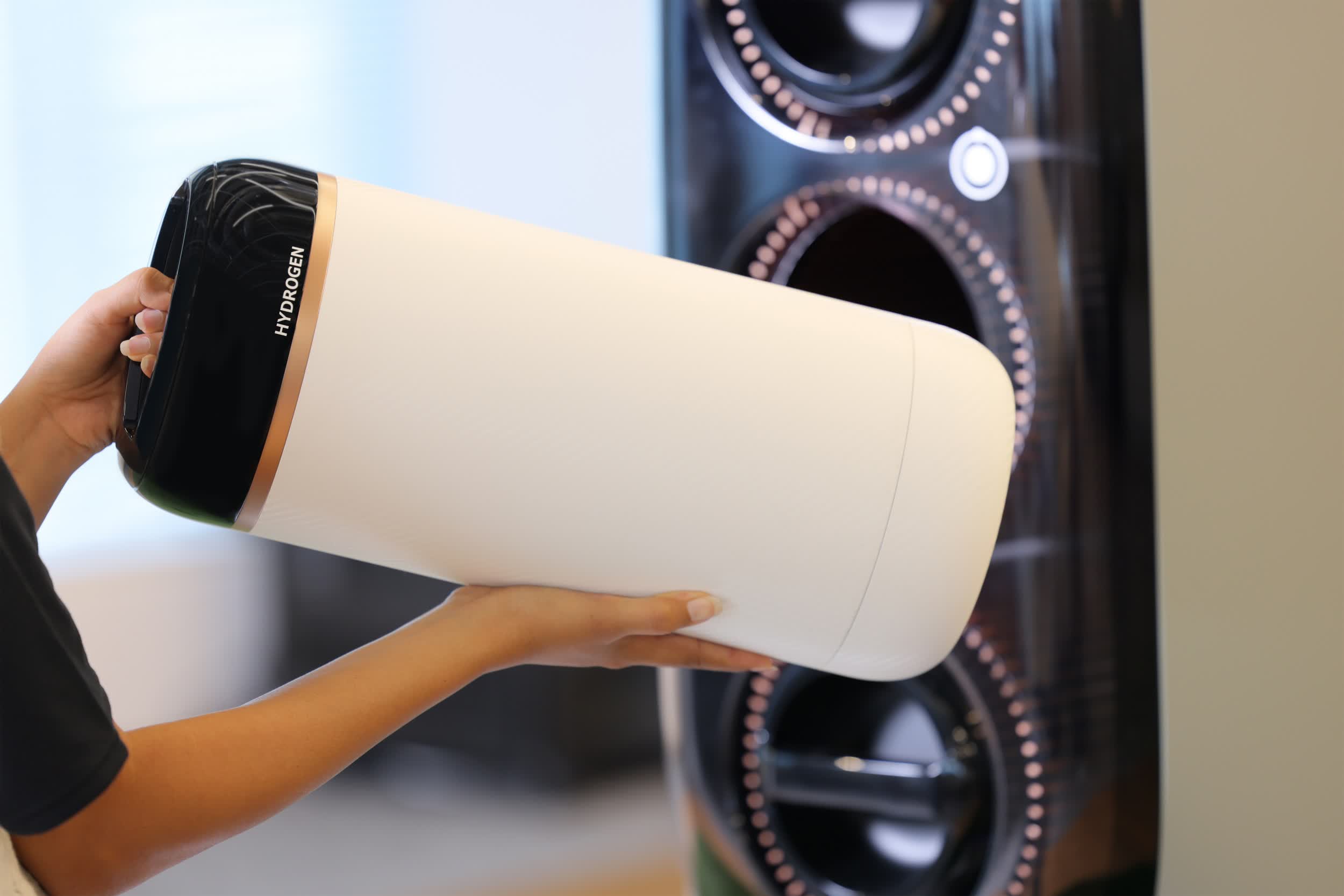In a nutshell: Toyota has created a working prototype of a portable hydrogen cartridge that could make the alternative energy source more feasible for daily use. The idea is similar in concept to a propane tank, allowing users to quickly and easily swap out cartridges as needed. Toyota estimates that one cartridge could supply enough electricity to operate a typical household microwave for 3-4 hours.

The canister was developed in conjunction with subsidiary Woven Planet Holdings. It measures roughly 16 inches in length and is seven inches across with a target weight of 11 pounds.

The automaker conceded that most hydrogen today is generated with fossil fuels and is used to refine petroleum and make fertilizer. In the future, however, Toyota believes hydrogen will be created using very low carbon emission techniques and will be used in a wider array of applications.
Toyota didn't cite any specific use cases for its hydrogen cartridges, but an accompanying graphic depicts use in cars, drones, motorcycles and even to recharge mobile devices.
The automaker said the Japanese government is actively working on studies to promote the safe adoption of hydrogen, adding that they are excited to support the efforts.
Toyota's main goal, we're told, is to realize a carbon-neutral society where everyone can access clean energy. Their efforts will start in Japan before expanding worldwide. Interested parties can get a closer look at the prototype during the Super Taikyu Series 2022 racing event at Fuji Speedway from June 3-5.
https://www.techspot.com/news/94804-toyota-shows-off-portable-swappable-hydrogen-cartridges.html